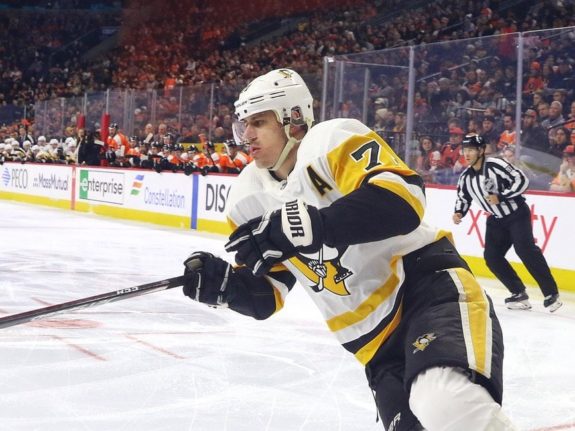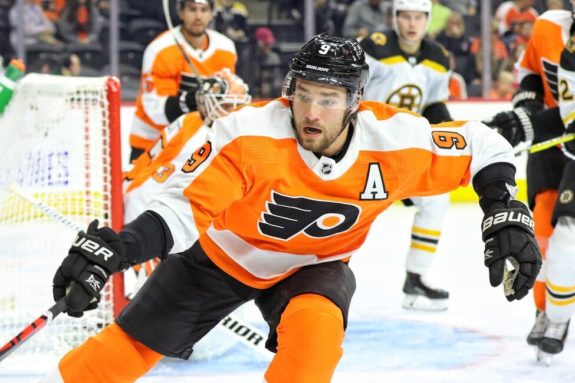- United States
- Canada
- Sweden
- Finland
- Czech Republic
- Switzerland
- Germany
- Medal Round: Best of the Projected 2022 Olympic Rosters
Could Russia or the Unified Team or Olympic Athletes from Russia repeat as gold medalists when Beijing hosts the 2022 Winter Olympics?
Let’s take a look at what Russia’s roster could look like in the upcoming Winter Olympics.
Russia’s Projected 2022 Olympic Roster
Led by Alex Ovechkin, Evgeni Malkin, and Nikita Kucherov, Russia could boast a strong, offensive roster at the next Winter Games.
| LW | C | RW |
| Alex Ovechkin | Evgeni Malkin | Nikita Kucherov |
| Artemi Panarin | Vladislav Namestnikov | Andrei Svechnikov |
| Vladimir Tarasenko | Ivan Barbashev | Kirill Kaprizov |
| Pavel Buchnevich | Mikhail Grigorenko | Ilya Kovalchuk |
| Alex Radulov | Nikita Gusev |
| LD | RD | G |
| Ivan Provorov | Mikhail Sergachev | Andrei Vasilevskiy |
| Dmitry Orlov | Alex Romanov | Sergei Bobrovsky |
| Vladislav Gavrikov | Nikita Zadorov | Igor Shestyorkin |
| Nikita Nesterov | Slava Voynov |
Olympic Roster Breakdown
Thanks in part to the 2018 Olympics, Russia—or the Olympic Athletes from Russia—could have one of the most experienced rosters in the tournament.
- Players from 2014 Olympic Games: 7
- Players from 2016 World Cup of Hockey: 11
- Players from 2018 Olympic Games: 8
- Players with no international experience*: 5
*Excluding World Junior Championships and World Championships.
Russia’s Potent Offense
Beyond Malkin, the Russians don’t have a lot of depth down the middle. Vladislav Namestnikov and Ivan Barbashev are fine in bottom-six roles, but apart from those two, there really aren’t optimal center choices out there to join the team. Perhaps 43-year-old Pavel Datsyuk is the answer?

Having Evgeny Kuznetsov would be great for the Russians, but he’s currently serving a four-year international suspension after testing positive for cocaine at the 2019 World Championships. He’ll be able to represent his country once again in 2023.
But on the wing, Russia is unstoppable. Andrei Svechnikov should not be on the third line – even on an Olympic team. Likewise, Pavel Buchnevich and the aging-but-effective Alex Radulov fighting for fourth line duties is absurd.
From top to bottom, Russia may have the best forward group behind Canada. As expected, their power play will be dangerous with some combination of Ovechkin, Malkin, Kucherov, Panarin, Svechnikov, and Tarasenko firing pucks on net. Look out, world.
One under-the-radar addition to the team is Kirill Kaprizov, who has been an amazing addition for the Minnesota Wild. It won’t be long until he’s on the same level as Russia’s other elite wingers.
A Thin Russian Blue Line
At first glance, Russia’s blue line is rather thin, especially when compared to the likes of Sweden and the United States. That being said, the players listed above are more than capable of stepping up to the challenge.
Ivan Provorov and Mikhail Sergachev will be Russia’s go-to defensemen in the tournament. Both will be entering their prime as elite blueliners.

Apart from Provorov and Sergachev, Russia will need to take a mix-and-match approach with their defensemen. Dmitry Orlov and Nikita Zadorov can be effective, but may struggle against the world’s best. Otherwise, it’s anyone’s guess who will be dressing for the Russians.
Regardless of who’s in front of them, Russia’s goalies will be a strength. By next season, Igor Shestyorkin could be on the same level as Sergei Bobrovsky and Andrei Vasilevskiy, giving Russia three elite netminders.
Just Missed
Pavel Datsyuk, Evgenii Dadonov, Dmitry Kulikov, Alex Barabanov, Ilya Mikheyev, Artyom Zub, Ilya Lyubushkin, Semyon Varlamov, Valeri Nichushkin, Ivan Telegin, Nikolai Prokhorkin, Alexey Marchenko, Vasili Podkolzin, Nikita Zaitsev.